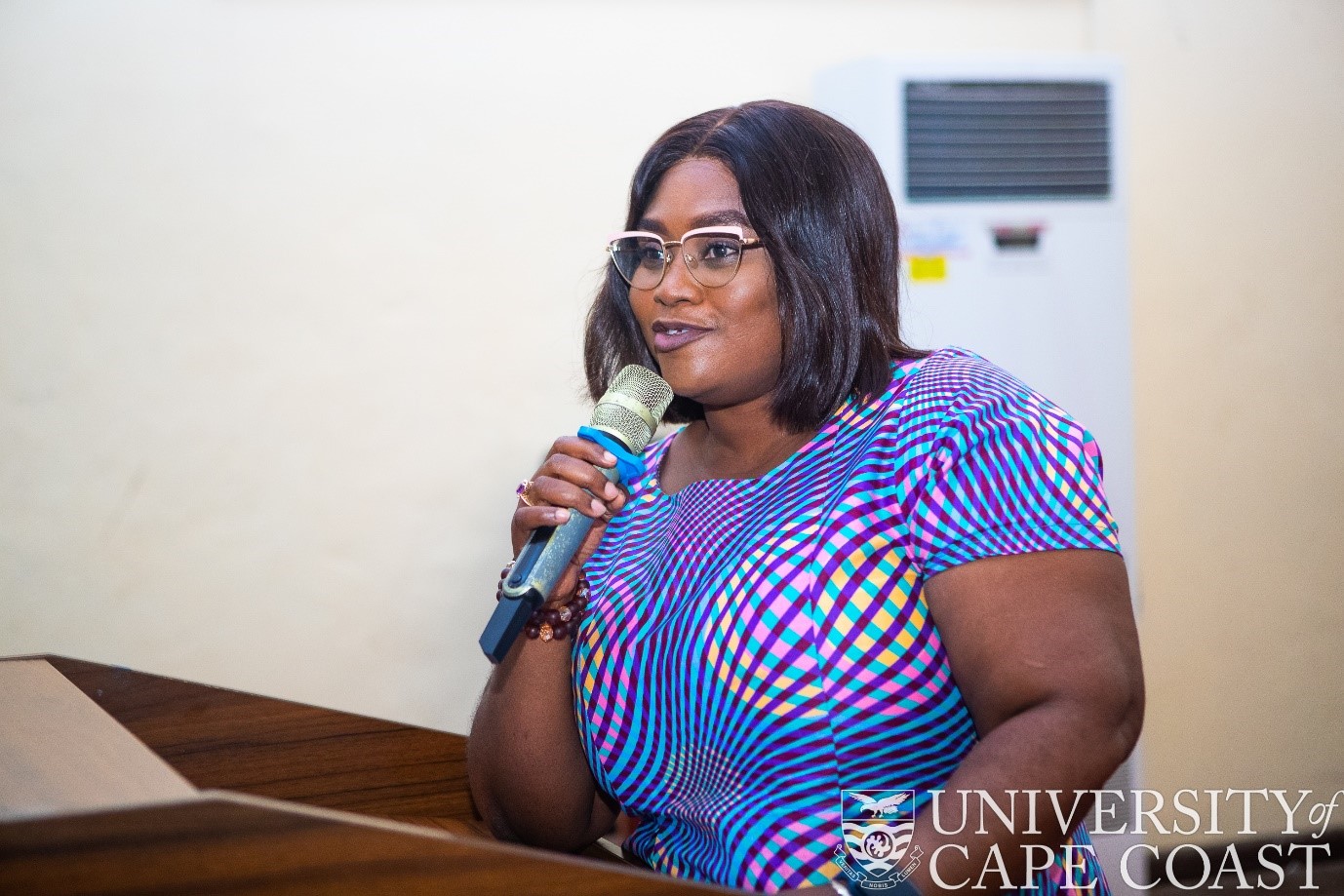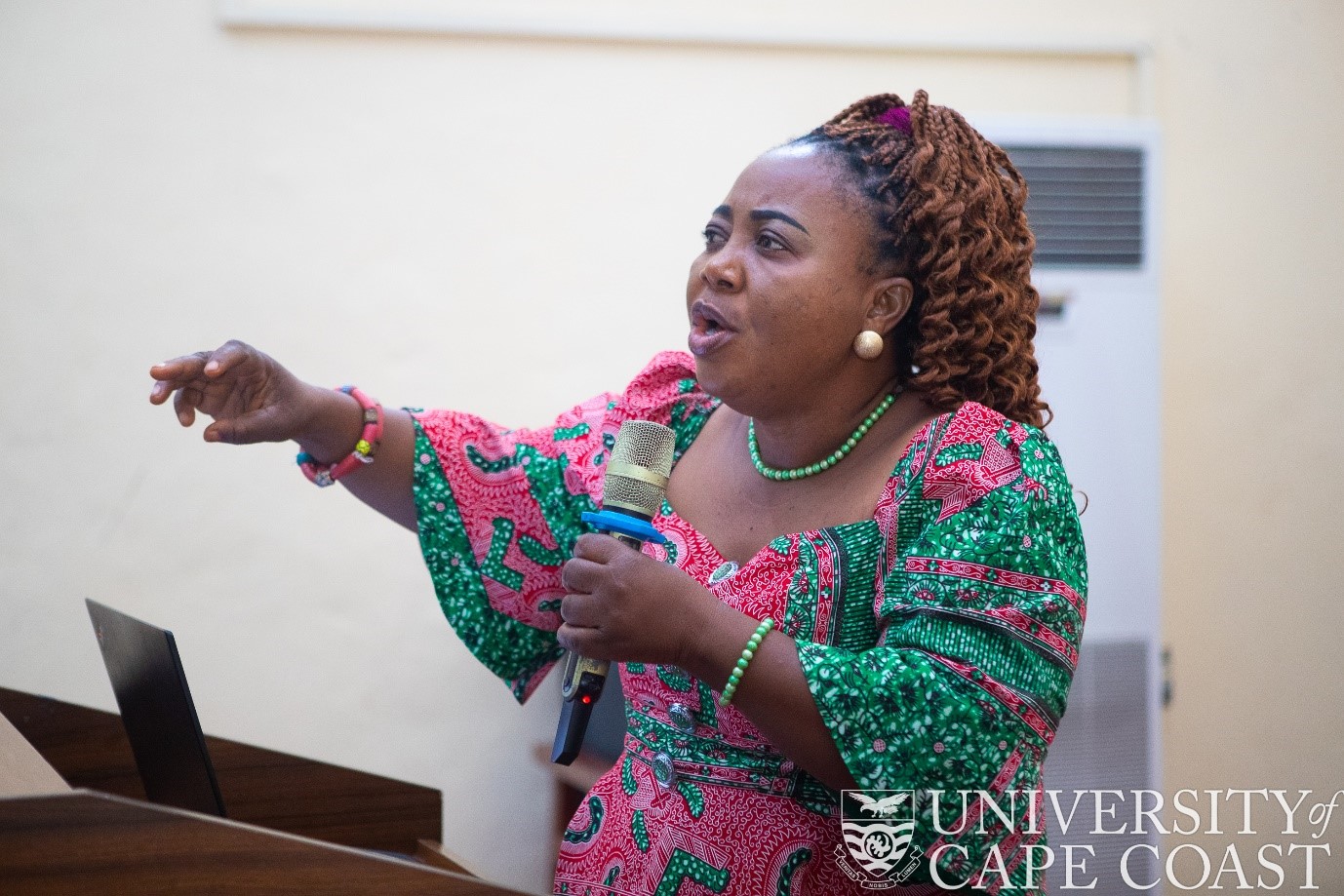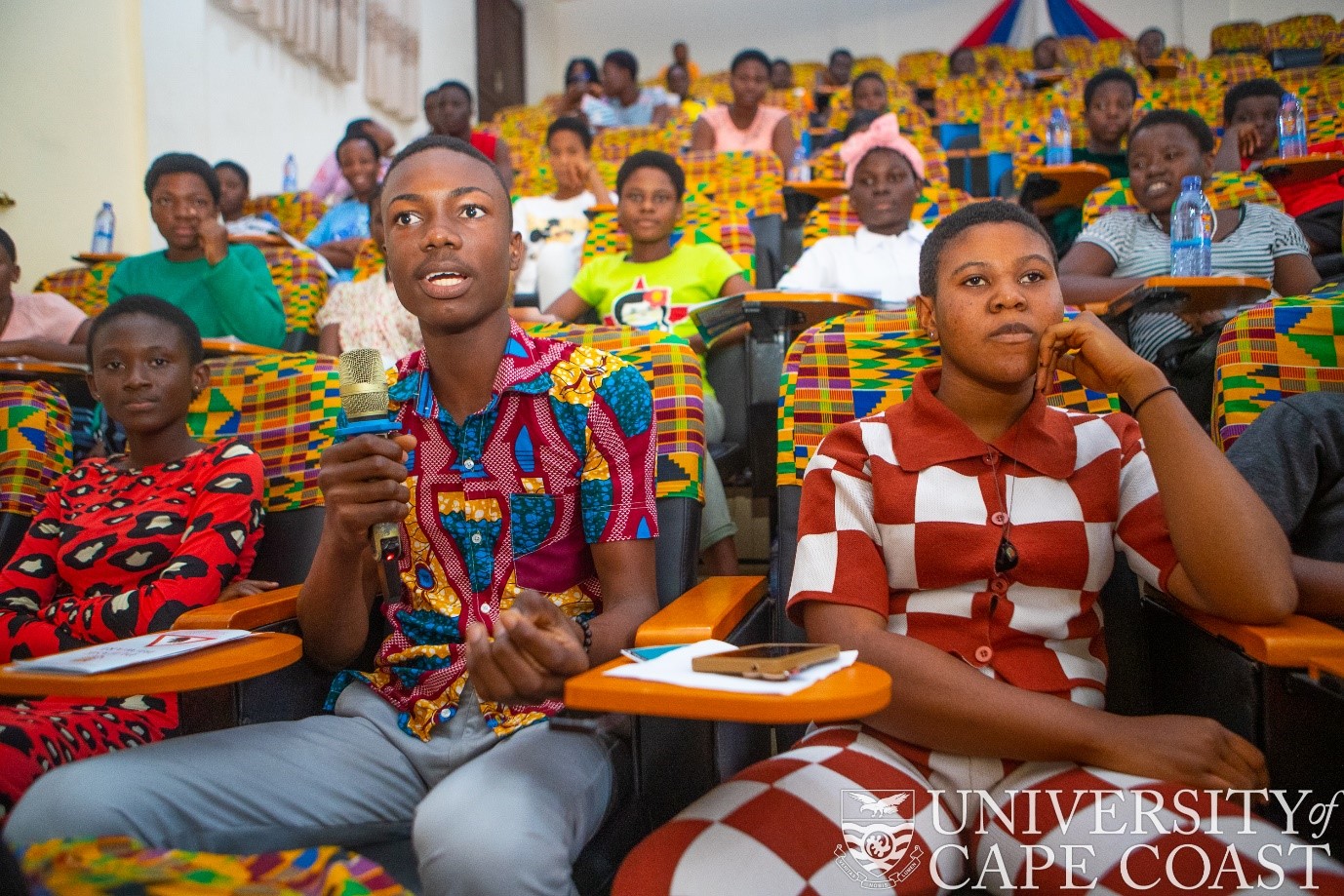The Centre for Gender Research, Advocacy and Documentation (CEGRAD) of the University of Cape Coast (UCC) has organised a symposium to equip girls with the requisite knowledge to fight for their rights.
The symposium was on the theme: “Child Marriage and Adolescent Rights.”
The Director of CEGRAD-UCC, Prof. Eunice Fay Amissah, who addressed participants on the topic, “Child Marriage in Ghana: Evidence, Consequences and Rights,” highlighted the importance of empowering young girls on their rights and the need to avoid early marriage. This, she noted, would enable them to pursue their education and aspirations.
Prof. Amissah identified poverty, societal expectations, and gender inequality as key factors driving child marriage. She stressed the fact that education is crucial for girls to avoid this fate and associated health risks, such as fistula disease.
Director of CEGRAD-UCC, Prof. Eunice Fay Amissah addressing participants
She encouraged adolescents to stay in school and share their aspirations with their parents to avoid the trap of early marriage.
"Society expects girls to get married rather than pursue a career. This belief should no longer be the norm. When your age says you are ready for marriage, that implies readiness for childbirth, but your body might not be prepared, leading to complications like delayed labour," she said.
To combat these challenges, the Director encouraged adolescents to share their goals with their parents, dream big, be entrepreneurially minded and stay in school to avoid child marriage.
"You can't dream and be walking about. Your dream will be shattered if you don't stay in school," she stressed.
Prof. Amissah pointed out that education was a powerful tool that provided the knowledge and confidence needed to make the right decisions for the future.
She called on stakeholders to promote the prevention of early child marriages among other harmful cultural practices against women and girls.
Central Regional Director of Gender, Mrs Richlove Amamoo
Speaking on the topic, “Rights of Adolescent Girls and Gender Equality,” the Central Regional Director of Gender, Mrs. Richlove Amamoo, stated that child marriage was a violation of human rights, and no tradition could justify such exploitation and harm inflicted on young girls.
She emphasized the legal rights of adolescent girls, citing the 1992 Constitution and the Children’s Act 560-1998. She reiterated that no girl should be deprived of her rights and abusers of the laws would face consequences.
Mrs. Amamoo urged young girls to stay informed, seek support, and focus on their education to build a future full of possibilities.
The Central Region Representative of the United Nations Fund for Population Activities (UNFPA), Mr. David Allan Paintsil, in a remark, warned against teenage pregnancy and the exploitation of young girls.
He urged girls to prioritize their education to secure their future.
A section of participants in the symposium with one posing a question
Mr. Paintsil stressed that child marriage should not be tolerated due to its far-reaching consequences on girls, parents, and society at large.
"Your parents may force you to live with the man who impregnated you, and your in-laws may not welcome that decision. Go to school, get a better life, drive your own cars, and become somebody in future," he advised the participants.
Source: Documentation and Information Section-UCC




